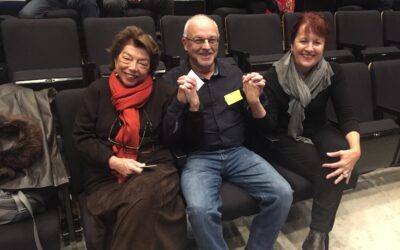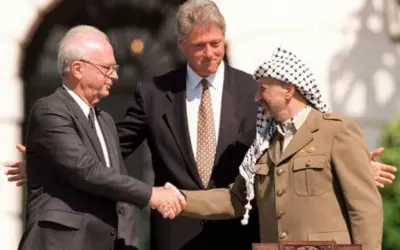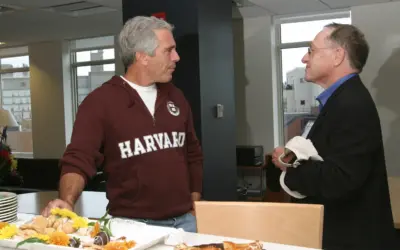Al Mayadeen
The former director of Human Rights Watch, Kenneth Roth, speaks to Al Mayadeen about how he was declined a Harvard University position because of his criticism of “Israel,” and the pressures exerted on him to dissuade him from his positions
The former director of Human Rights Watch (HRW), Kenneth Roth, revealed in an interview with Al Mayadeen how he was refused a fellowship in human rights at Harvard University because of his criticism of “Israel.”
Roth stated that the veto on him either came from one of the donors or from the dean of the university, who was afraid that someone would object to Roth’s positions on “Israel.”
He added that when Harvard University called him, they claimed that the position was granted to another person despite the fact that initially, he had been offered the position by the university.
The former HRW director also pointed out that when one of his colleagues inquired about the reasons behind his sidelining, the dean of the university told argued that he is an “observer,” but added that HRW is biased against “Israel,” and that the refusal also came as a result of Tweets in which Roth criticized “Israel.”
Roth stressed that what happened constituted a great shock, as this has never happened in the history of Harvard.
Punishing academics for criticizing ‘Israel’ is not new
Roth further revealed to Al Mayadeen that what happened to him was not a first, as there had been several instances where an academic who criticized “Israel” was punished. Roth warned that the danger lies in the fact that new academics may see what transpired and may become afraid of directing any criticism towards “Israel” for fear of punishment.
He added that what happened to him at Harvard University is not unique, as it had happened in other universities before. For example, Roth explained that a similar situation had taken place at the University of Toronto, two years ago, where a person was hired to head a human rights center, then a tentative offer has been made, and then suddenly it was withdrawn due to her criticism of ‘Israel’.”
In this case, Roth was referencing Dr. Valentina Azarova, an international law practitioner, and researcher. Azarova has described herself as an anti-oppression educator and had written several research pieces regarding Israeli practices in occupied Palestine, such as “The Pathology of a Legal System: Israel’s Military Justice System and International Law.”
The former HRW director continued that the disappointing thing about what happened with him is that “if any institution can resist donor pressure, it is Harvard, as it is the richest university in the world,” adding that Harvard must have maintained that “we do not accept pressure from donors that tries to censor our scholars, that try to undermine academic freedom.”
He stressed that what happened pointed to a serious matter regarding new academics. Roth argued that these new academics will refrain from criticizing “Israel” out of fear of losing their career or getting canceled following what happened to him and how it affected his career.
Roth stated he is not worried about his career given that he had plenty of other options, however, he said “I fear about a young academic who sees what just happened to me and says: uh oh! I can’t touch ‘Israel’, if I criticize ‘Israel’ that’s going to end my career; I’m going to get canceled.
Pressure exerted on Roth to refrain from ‘Israel’ criticism
Roth revealed to Al Mayadeen that donors and other parties pressured him during his time as HRW director and urged him not to criticize “Israel.” Roth stressed his resistance to all pressures and argued that Harvard’s decision to fold under donor pressure and cancel his fellowship did not change his position or perspective on how Human Rights must be applied across the world.
He said, “Harvard should not impose bans on its scholars. It should be upholding academic freedom.”
The academic further stressed that he has not changed his perspective on the fact that “human rights standards must be applied even-handedly” and expressed his hope that Harvard would change the way it treats this kind of pressure because the university should not censor its scholars. Moreover, Roth insisted, “I am not going to change what I do but I hope that Harvard changes the way it proceeds.”
Roth hoped that university officials would realize that what happened was wrong and that they would change their minds, take a different path, and rectify things. It is worth noting that Roth here referenced the need to reassess Harvard’s decision-making process with respect to donor pressure and not just the incident that took place with respect to his fellowship. Only that, the former director argued, will “send a message to scholars around the world that it is safe to criticize ‘Israel’, that they’re not going to be punished for it.”
What do the supporters of “Israel” rely on to defend it?
The former director general of HRW confirmed to Al Mayadeen that supporters of the Israeli government engaged in a campaign of “name-calling” against those who criticize “Israel.”
He added that those engaged in the name-calling campaign have no intention of discussing the facts of what “Israel” is doing because “it’s pretty disturbing,” adding that “Israel” is “committing the human rights crime of apartheid.”
Additionally, Roth explained that instead of discussing the substance itself, these supporters show a sign of weakness as they resort to name-calling and say “you’re biased; you’re anti-Semitic.”
In conclusion, Roth voiced, through Al Mayadeen, that his greatest concern is the paralleling that Israeli government supporters are committed to in labeling any criticism of “Israel” as anti-Semitic.
In a letter sent by HRW to Harvard University President Lawrence Bacow, it was noted that “the Kennedy School’s decision to deny Mr. Roth the opportunity of joining the Carr Center because of his work will doubtlessly have repercussions for academic freedom throughout Harvard University,” adding that “unless addressed it could taint Harvard’s stellar reputation around the globe.”
The letter further urged the president “to review the decision and take the measures necessary to uphold the values of academic freedom.”








